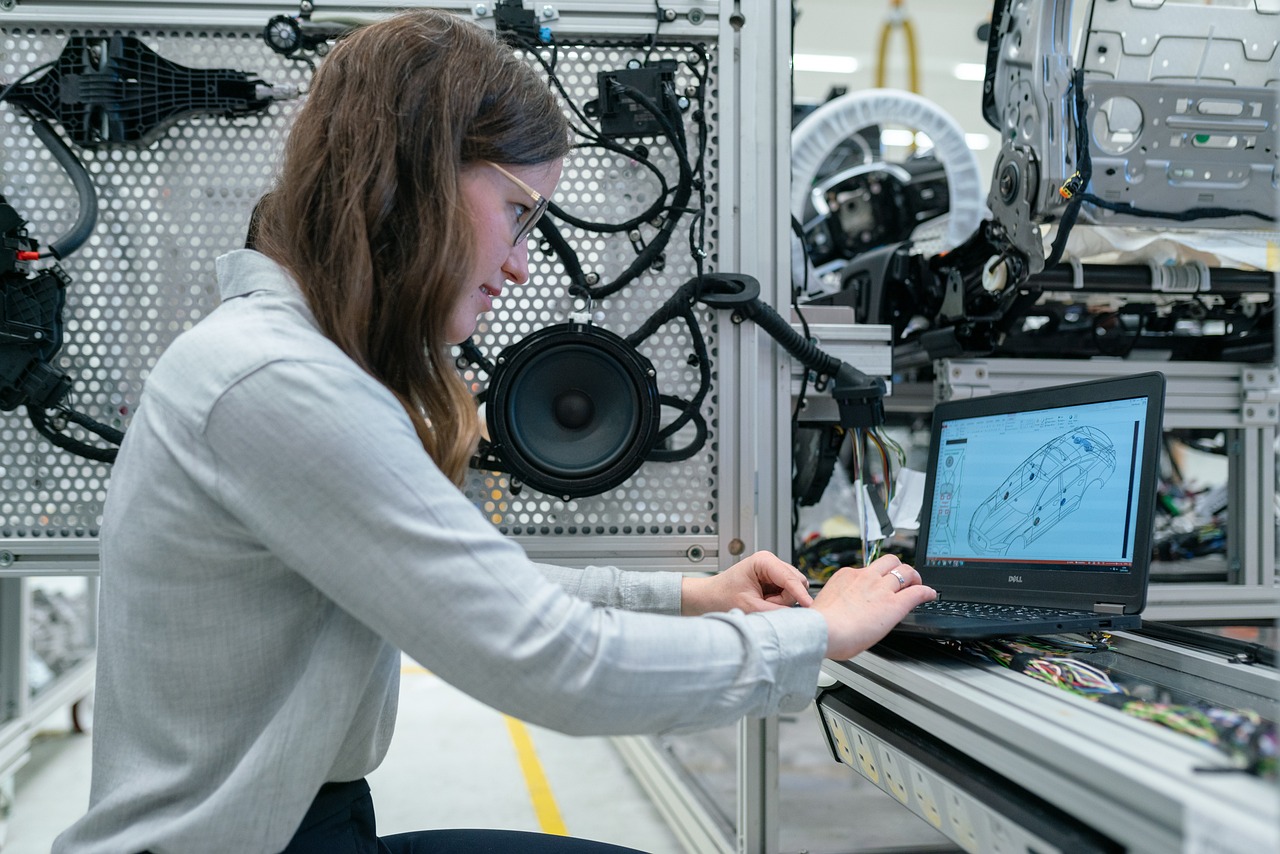The Latest Trends Improving the Automotive Industry
Like the vehicles they manufacture, automotive companies must regularly accelerate and embrace innovations for an incredible driving experience. In a highly competitive environment, it pays to be innovative and embrace the latest trends.
Some of the latest automotive trends include enhanced vehicle connectivity and electric cars. However, many other exciting trends can take shape in the coming years, disrupting how automotive companies deliver value to their consumers.
Here are the latest trends improving the automotive industry.
- Artificial Intelligence
Various areas of the automotive industry now rely on Artificial Intelligence (AI) technologies, from machine learning to computer vision and natural language processing (NLP). All these technologies contribute to vehicle improvements, especially in enhancing driver and passenger experience. They offer different functionalities, such as automating route navigation and planning, while improving safety and efficiency.
The automotive industry relies on AI in almost every aspect of vehicle production, from design to post-production. Manufacturers believe in its capability to offer exceptionally safe, comfortable, and fast vehicles. But among the benefits that stood out is AI’s ability to improve safety. AI in automotive enables ADAS or Advanced Driver-Assistance Systems, which help improve road safety. In addition, AI algorithms can read and analyse sensor data to identify dangers in real time, mitigating road accident risks.
Autonomous Vehicles are also the result of AI technologies, which allow vehicles to understand their surroundings and drive around without human intervention. AI in Autonomous Driving can result in fewer human errors and more organised traffic.
- Electric Vehicle Adoption
One of the most significant trends improving the Automotive Industry is the adoption of electric vehicles (EVs). The development of EVs is increasing in pace, not only for passenger cars but across the whole aspects of the transport industry.
As the electrification of vehicles is becoming more mainstream, several ground-breaking changes are happening quickly. The changes are not only technological since EVs are replacing internal combustion engines, moving closer to making it a reality. Experts estimate driverless cars will replace more than 50% of current vehicles by 2027.
Traditional auto manufacturers are already feeling the pressure and scrambling to manufacture electric vehicles. However, many are playing catch-up since several startup electric car companies are well ahead of the curve. Such a revolution for electric cars pushes the automotive industry to change in many ways. Many are rethinking their brand management strategies.
Indeed, Electric Vehicles are the future of the automotive industry. They are cleaner, more efficient, and easier to drive. Traditional automobile manufacturers realise they must adapt to keep up with the trend or die.
- Vehicle Purchases Shift Online
One of the latest trends improving the automotive industry is how customers are shifting online for vehicle purchases. We now live in the digital age where the internet has transformed almost every industry and created a new way for customers to behave. As a result, many car buyers choose to shop from the comfort of their couch while having instant access to information at the click of a button.
People are now only a search away from buying a car. Gone are the traditional means of visiting a showroom and spending hours talking to a salesperson. Nowadays, shopping for a new vehicle offers a smoother and more convenient experience. Although many still prefer a traditional way of car shopping, the influence of the Internet has led many consumers to conduct thorough research online before buying.
While some prefer to visit car showrooms to check out the latest models, many would turn to the Internet to research different car models. Therefore, automotive companies should boost their online presence. With most car buyers turning to the Internet, an online presence is now a crucial aspect of the business. Within minutes, a prospective buyer can visit your website to check if a particular car model is in stock and to find out the vehicle features, prices, and other information.
- Autonomous Driving
Seeing fleets of driverless cars delivering people to their destinations has piqued the interests of consumers, fuelling billions of dollars in investment in recent years. But despite encountering setbacks that delayed the launches of autonomous vehicles (AVs), experts agree that AVs can significantly disrupt the automotive industry.
Indeed, Autonomous Driving can create a massive value for the automotive industry, producing billions of dollars in the coming years. However, automotive companies must recognise the consumer and consumer benefits of autonomous driving to develop effective sales and business strategies. They should consider investing in new technologies and address safety concerns.With this, the need for automotive software engineer jobs is becoming more important.
Autonomous driving will revolutionise how consumers experience mobility. It makes driving safer, more convenient, and more enjoyable. Instead of spending several hours on the road driving, car owners can use it for more essential tasks, such as answering work emails and taking video calls.
Employees taking long commutes can benefit the most from autonomous driving, increasing their productivity and even shortening their workdays since it’s possible to work from an autonomous vehicle.
- Internet of Things
The Internet of Things (IoT) has become one of the latest trends in the automotive industry. It refers to a network of objects embedded in software, sensors, and connectivity to collect and exchange data. In the automotive industry, the technology is called automotive IoT, which involves integrating smart devices, sensors, and connectivity solutions into vehicles to produce vehicles that can offer a more connected and smart driving experience.
By integrating automotive IoT, vehicles can collect and exchange data with other automobiles, cloud-based platforms, and infrastructure, enabling a wide range of advanced features, from predictive maintenance to real-time traffic updates. More importantly, automotive IoT has allowed automobile manufacturers to implement technologies to transform vehicles into near-artificial intelligence.
The automotive industry is one of those industries that benefited from IoT technologies. Such technological revolution has brought about several advantages for manufacturers and car owners. Aside from improving safety, IoT has allowed manufacturers to collect and analyze data more than ever.


























